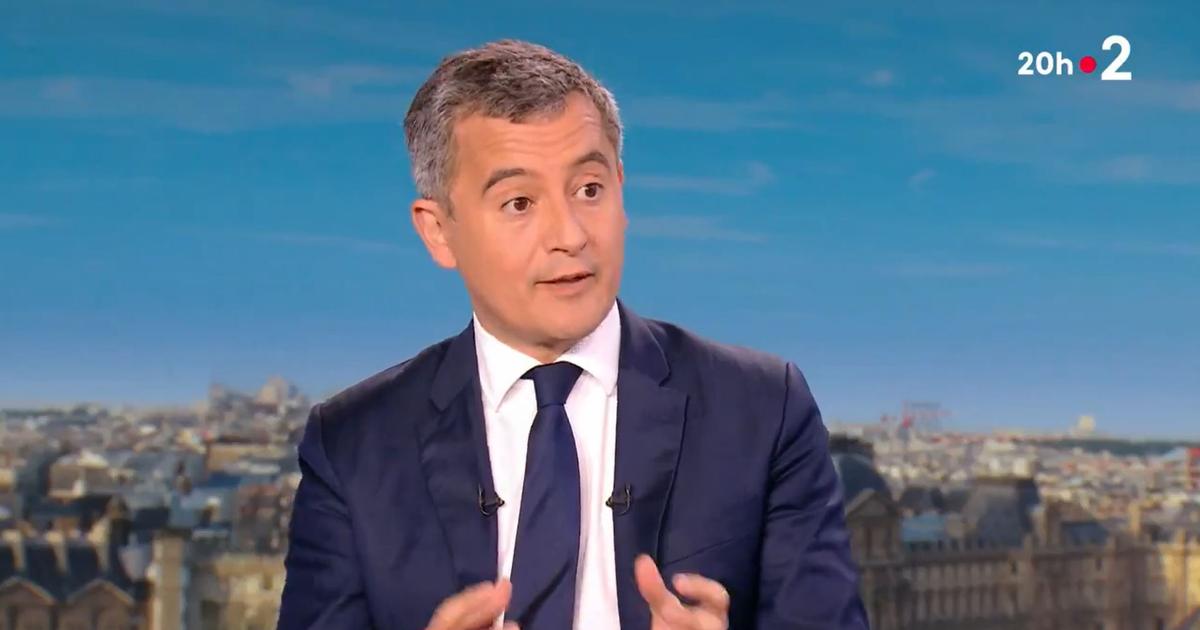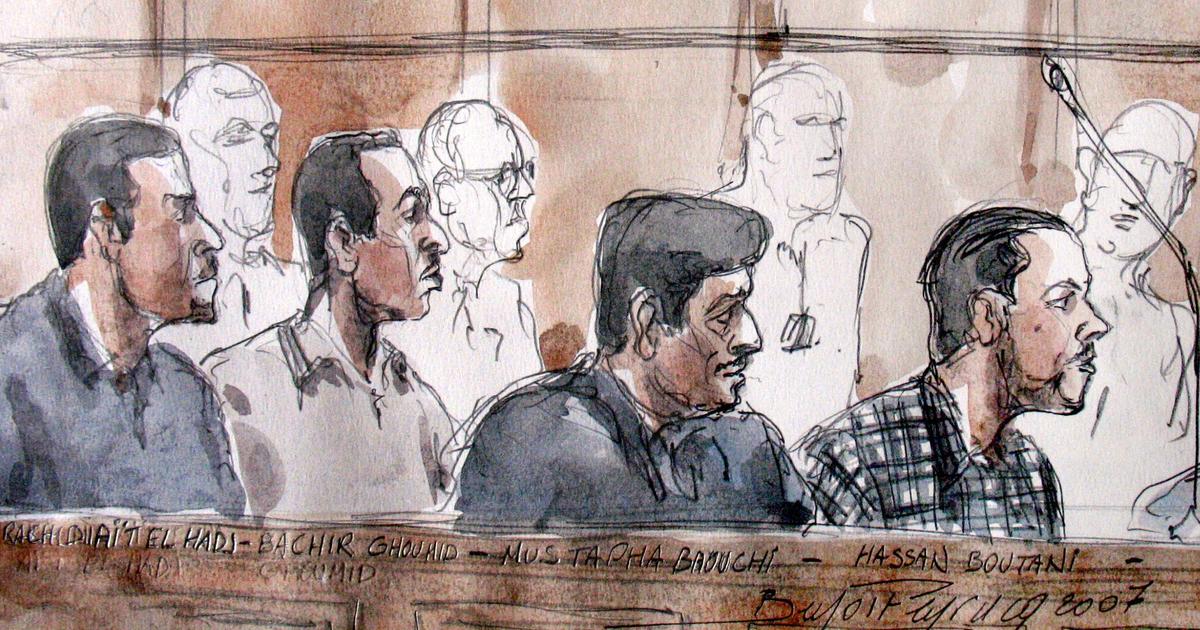The largest antiterrorist trial in France, and one of the most complex in the recent history of Europe, began this Wednesday in Paris between large security measures to try 20 of those allegedly responsible for the Islamist attacks of November 13, 2015 in the Gallic capital that left 130 dead, hundreds injured and a traumatized country.
During the next nine months, in the middle of the electoral campaign, hundreds of witnesses, including former President François Hollande, the almost 1,800 victims constituted in private prosecution and the more than 330 lawyers for the accused and accusers will seek to find answers and clarify responsibilities for a massacre that It shocked the whole of France and a Europe that since then has not stopped living under the jihadist threat.
More information
France to put 20 people on trial for the 2015 Paris attacks
The terrorist threat overwhelms France again
That things are not going to be easy, it became clear as soon as the macro-trial opened, 45 minutes late, during the presentation of the 14 defendants present, 11 of them detained and three on probation.
Six more will be tried in absentia, although most are suspected of having died in the Syrian-Iraqi area where the Islamic State, in whose name the massacre was committed almost six years ago, was established.
"I left everything to become a fighter of the Islamic State," said Salah Abdeslam, the only survivor of the commandos that sowed terror on the night of 13-N, as soon as he received the word. The 31-year-old French-Moroccan had focused all the attention since he entered the dock, where, behind bulletproof glass and watched by a score of agents, he sat somewhat away from the rest of the accused. The president of the court, Jean-Louis Périès, only sought to confirm some personal data - name, age, profession - within the framework of procedural routines at the beginning of any trial. But Abdeslam, dressed in black and with a Salafi beard that he revealed by removing his mask, took the opportunity to proclaim his faith and adherence to the Islamic State. "First of all,I want to attest that there is no god but Allah and that Muhammad is his prophet, ”he said defiantly. "We will see that later," Périès reproached him. A call to order that Abdeslam, whose questioning is scheduled for mid-January, scorned by immediately claiming to be an ISIS "fighter" when the magistrate asked him about his profession.
Somewhat later, after the hearing resumed after a pause decreed when another of the defendants said he felt ill, Abdeslam again interrupted the process to denounce, he said, the treatment of "dogs" they receive in jail. “They have treated me like a dog for more than six years. I have not complained for a single reason, because when I die I will rise again ”, said the jihadist. "We are not before an ecclesiastical court," the president of the court cut him off.
In the gigantic courtroom built especially for this trial in the Palais de Justice in Paris, the audience held their breath.
The 550 seats enabled - there are other neighboring rooms - are occupied mainly by lawyers, although there is also space for some journalists and a part of the 1,765 victims of a score of nationalities constituted in private prosecution who wanted to attend this first day of trial .
Join EL PAÍS now to follow all the news and read without limits
Subscribe here
For Calixte it was not an easy decision. On November 13, this Parisian went out to buy milk and bread for breakfast the next day and, along the way, had the “bad idea” of stopping at the nearby Le Carillon bar for a beer with two friends from the neighborhood. Since then he has regretted it. Minutes after settling on the terrace, one of the 13-N commandos fired a flurry of shots at the bar. He emerged unscathed, but his neighbors perished. "I will never be able to turn the page," he acknowledged minutes before the hearing. The attack "has changed my life, my relationship with other people, I am afraid to trust, to take the subway." Until the Palace of Justice, in the heart of Paris, he arrived this Wednesday by taxi, still unable to use public transport for fear of a new terrorist attack.
"We are always going to live with this," confirmed Thierry, who was listening to the American group Eagles of Death Metal at the Bataclan when the third command shot into the concert hall. “The victims are all different. There are people who are waiting for this trial to be able to move on to something else, I have already done it, although I remember it all the time and I have nightmares (…) this does not leave you unscathed ”, he admitted. Paul Henri was a security guard at the Stade de France where the chain of attacks began. He was injured in the foot and ankle, in addition to losing hearing in one ear, when one of the terrorists blew up the vest with explosives that he was carrying just 10 meters from where he was. He goes “calm” to the trial, which he hopes above all that the accused “realize what they have done…. Although that would not change anything either ”, he considers.
Even so, the majority agrees on the importance of holding this trial, the investigation of which has taken more than five years and has resulted in 542 file volumes and a 348-page indictment. Calixte hopes that it involves "recognition as a victim" and, above all, "that justice is done." The victims also want to "understand, to know how they got there," says lawyer Samia Maktouf.
For François Molins, public prosecutor of the Republic at the time of the attacks, the trial should also contribute to “participate in the construction of a collective memory both at national and even European level, since it is our shared values that are attacked by this indiscriminate terrorism. , these massive killings, "he explained in an interview on the eve of the process. Like Hollande or former Interior Minister Bernard Cazeneuve, Molins is called to testify in a trial that is expected to release its verdict at the end of May and which - according to the president of the court said Wednesday - is "historic" and " extraordinary ”and will require the effort of all so that“ justice maintains its dignity ”.
Follow all the international information on
and
, or in
our weekly newsletter
.

/cloudfront-eu-central-1.images.arcpublishing.com/prisa/QVKQZU4RIY3BGAEV5UA34VHLNE.jpg)





